
Lufupa River Camp: A Serene Escape in Zambia's Wilderness
Lufupa River Camp is a hidden gem located in the heart of Zambia's Kafue National Park. This destination offers a unique blend of tranquility and adventure, perfect for nature lovers and those seeking a break from the hustle and bustle of everyday life. The camp is nestled along the banks of the Lufupa River, providing guests with stunning views and an intimate connection with nature. Visitors to Lufupa River Camp can enjoy a variety of activities, including game drives, walking safaris, and boat cruises. The park is home to a diverse range of wildlife, including elephants, lions, leopards, and over 500 species of birds. The knowledgeable guides at the camp will ensure you have an unforgettable experience, sharing their insights and expertise about the flora and fauna of the region. Accommodations at Lufupa River Camp are comfortable and rustic, blending seamlessly with the natural surroundings. Guests can relax in spacious tents equipped with modern amenities while enjoying the sights and sounds of the African wilderness. The camp also offers delicious meals prepared with fresh, local ingredients, allowing you to savor the flavors of Zambia. Whether you're seeking adventure or relaxation, Lufupa River Camp provides a perfect escape. Its remote location and pristine environment make it an ideal destination for those looking to reconnect with nature and experience the beauty of Zambia's wildlife.
Local tips in Lufupa River Camp
- Pack light, breathable clothing as temperatures can vary throughout the day.
- Bring binoculars for bird watching and spotting wildlife from a distance.
- Don't forget insect repellent to protect against mosquitoes and other insects.
- Carry a good camera to capture the stunning landscapes and wildlife.
- Book your activities in advance to ensure availability, especially during peak season.
Lufupa River Camp: A Serene Escape in Zambia's Wilderness
Lufupa River Camp is a hidden gem located in the heart of Zambia's Kafue National Park. This destination offers a unique blend of tranquility and adventure, perfect for nature lovers and those seeking a break from the hustle and bustle of everyday life. The camp is nestled along the banks of the Lufupa River, providing guests with stunning views and an intimate connection with nature. Visitors to Lufupa River Camp can enjoy a variety of activities, including game drives, walking safaris, and boat cruises. The park is home to a diverse range of wildlife, including elephants, lions, leopards, and over 500 species of birds. The knowledgeable guides at the camp will ensure you have an unforgettable experience, sharing their insights and expertise about the flora and fauna of the region. Accommodations at Lufupa River Camp are comfortable and rustic, blending seamlessly with the natural surroundings. Guests can relax in spacious tents equipped with modern amenities while enjoying the sights and sounds of the African wilderness. The camp also offers delicious meals prepared with fresh, local ingredients, allowing you to savor the flavors of Zambia. Whether you're seeking adventure or relaxation, Lufupa River Camp provides a perfect escape. Its remote location and pristine environment make it an ideal destination for those looking to reconnect with nature and experience the beauty of Zambia's wildlife.
When is the best time to go to Lufupa River Camp?
Iconic landmarks you can’t miss
Kafue National Park
Discover the breathtaking landscapes and rich wildlife of Kafue National Park, Zambia's premier safari destination for nature enthusiasts.
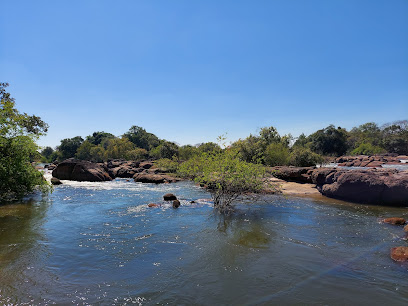
Lufupa River
Discover the tranquil beauty of Lufupa River in Zambia, a paradise for nature lovers and adventure seekers seeking unforgettable experiences.
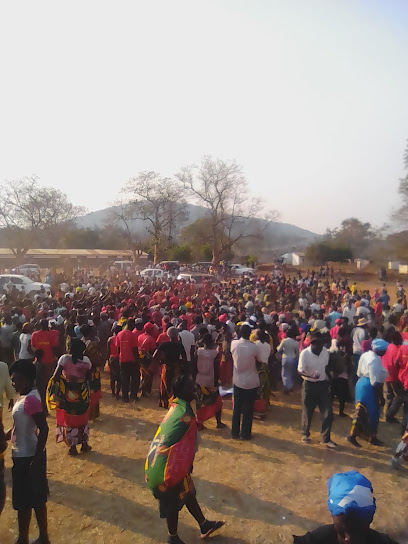
Shumba Camp
Experience luxury and adventure at Shumba Camp, the perfect lodge for wildlife enthusiasts in Zambia's breathtaking wilderness.
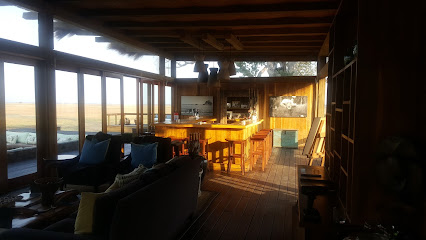
Busanga Bush Camp
Experience the beauty of Kafue National Park at Busanga Bush Camp, where luxury meets adventure in the heart of Zambia's wilderness.

Busanga Plains
Experience the untouched wilderness at Busanga Plains, Zambia's hidden gem for wildlife enthusiasts and nature lovers.
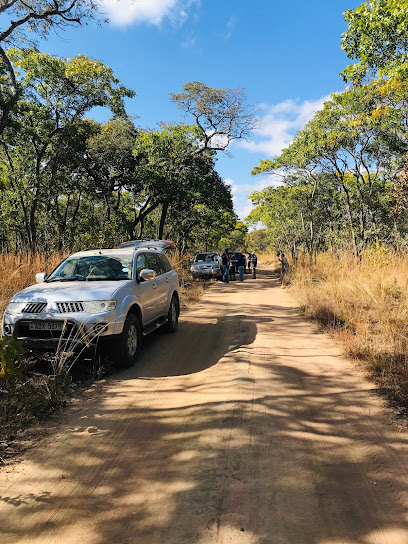
Busanga Plains Camp
Discover the wildlife wonders and breathtaking landscapes at Busanga Plains Camp in Kafue National Park, a perfect family-friendly safari destination.
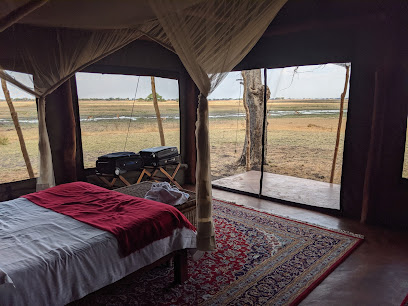
Leopard Lodge Kafue
Experience the magic of Zambia's wildlife at Leopard Lodge Kafue, where adventure and nature await in the heart of Kafue National Park.

Lufupa Lodge
Discover the serene beauty and wildlife adventures at Lufupa Lodge, an ideal retreat in Zambia's stunning Lower Zambezi National Park.
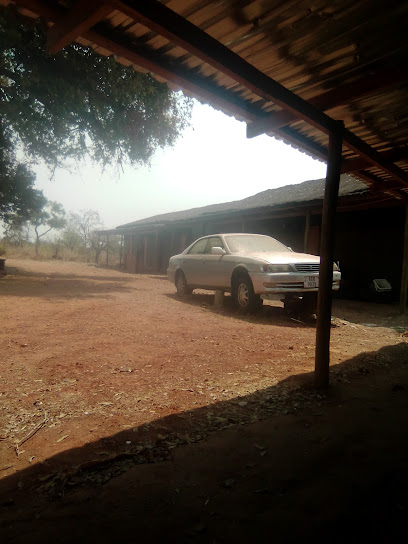
Unmissable attractions to see
Munda Wanga Environmental Park
Explore Munda Wanga Environmental Park: A Wildlife Sanctuary and Educational Hub in Chilanga, Zambia, Perfect for Nature Enthusiasts and Families.
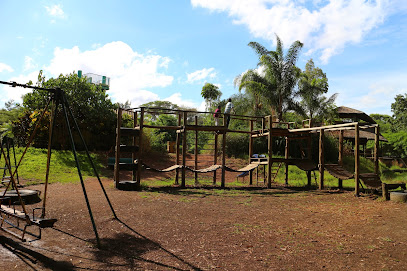
Kafue National Park
Explore the vast wilderness of Kafue National Park, where breathtaking landscapes and diverse wildlife create unforgettable adventures in the heart of Zambia.
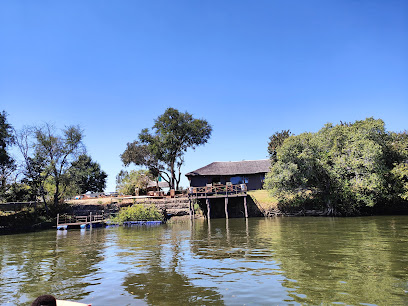
Knife Edge Bridge
Experience breathtaking views and thrilling walks at the Knife Edge Bridge, a top tourist attraction in Livingstone, Zambia.
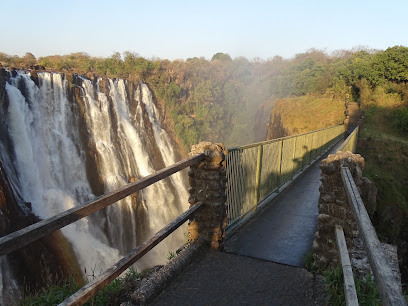
Mukambi Safari Lodge
Experience the ultimate safari getaway at Mukambi Safari Lodge, your gateway to Kafue National Park's breathtaking wildlife and stunning landscapes.

Lusaka National Park
Discover the tranquility of Lusaka National Park, where nature enthusiasts can explore Zambia's stunning landscapes and diverse wildlife in the heart of Lusaka.
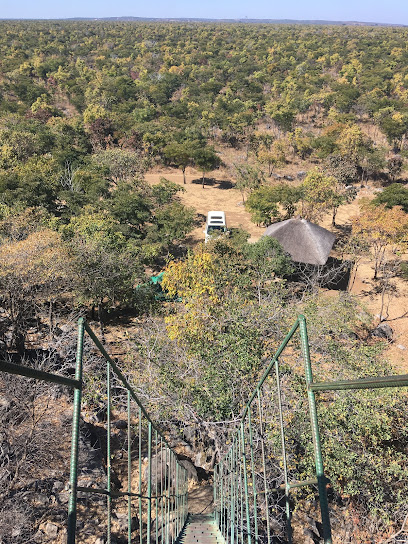
Palms Play Park
Experience family fun and relaxation at Palms Play Park, Chilanga's premier green space for outdoor adventures and memorable moments.
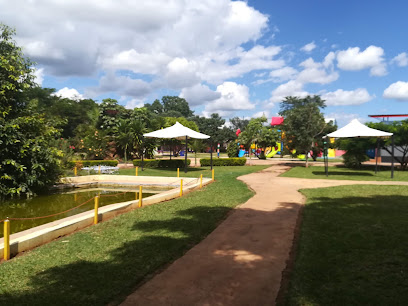
Nsumbu National Park
Explore the stunning landscapes, diverse wildlife, and serene beaches of Nsumbu National Park on the shores of Lake Tanganyika in Zambia.
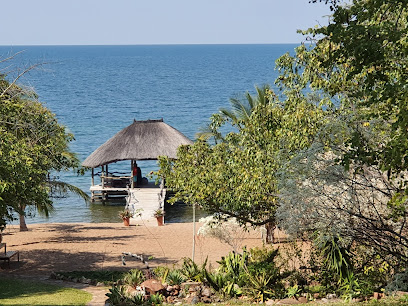
Chaminuka Offices
Experience the perfect blend of nature and culture at Chaminuka Offices, a unique Zambian destination for wildlife and heritage enthusiasts.
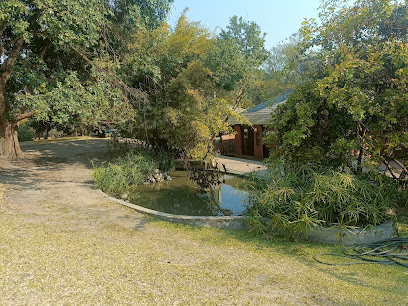
Kasabushi Camp
Experience the wildlife and tranquility of Kafue National Park at Kasabushi Camp, the perfect escape for nature lovers and adventure seekers.
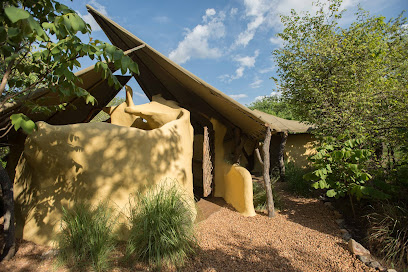
Chisa Busanga Camp by Green Safaris
Discover the beauty of Kafue National Park at Chisa Busanga Camp, a children's paradise for wildlife adventures and family bonding.
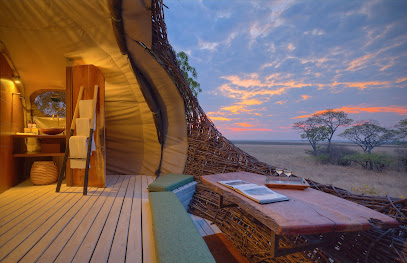
Busanga Plains
Experience the breathtaking beauty and unique wildlife of Busanga Plains, a hidden gem in Zambia's Kafue National Park perfect for adventurous travelers.
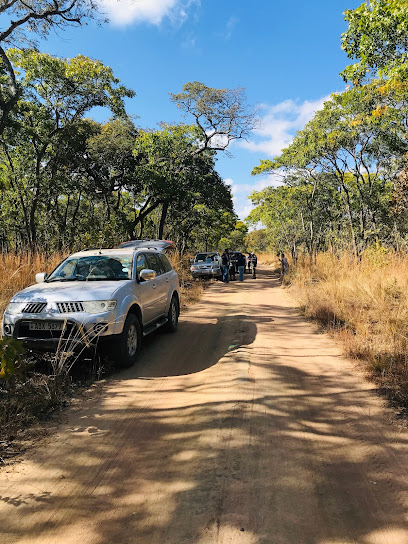
Lilayi Elephant Nursery
Discover the inspiring journey of orphaned elephants at Lilayi Elephant Nursery, a wildlife rescue service dedicated to conservation and rehabilitation.
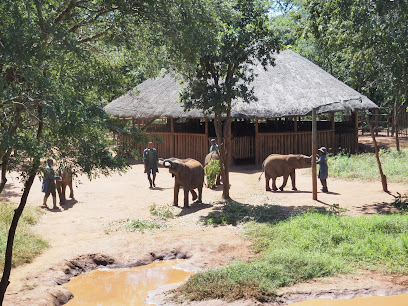
Busanga Plains Camp
Experience the enchanting wilderness at Busanga Plains Camp in Kafue National Park, where adventure meets the beauty of nature.
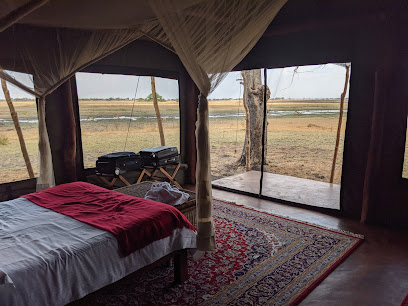
Leopard Lodge Kafue
Discover the wilderness at Leopard Lodge Kafue, a premier wildlife and safari park in the heart of Zambia's breathtaking Kafue National Park.

Essential places to dine
Hippo Lodge
Discover tranquility and adventure at Hippo Lodge in Kalubilo – your gateway to Zambia's stunning wildlife and serene landscapes.
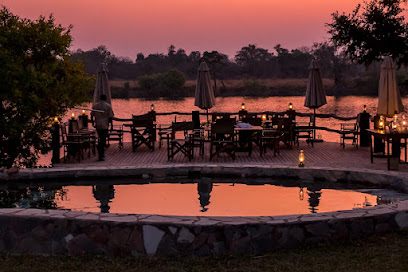
Shumba Camp
Discover unparalleled wildlife experiences at Shumba Camp, where luxury meets adventure in Zambia's stunning wilderness.
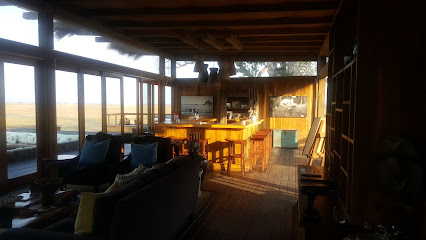
Lufupa River Camp
Experience nature's embrace at Lufupa River Camp - where tranquility meets adventure amidst Zambia's breathtaking landscapes.
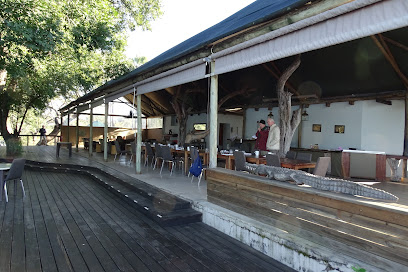
Busanga Bush Camp
Discover unparalleled wilderness experiences at Busanga Bush Camp in Kafue National Park - where luxury meets nature.

Kafue River Lodge
Experience authentic Zambian hospitality at Kafue River Lodge, where nature meets comfort along the scenic Kafue River.
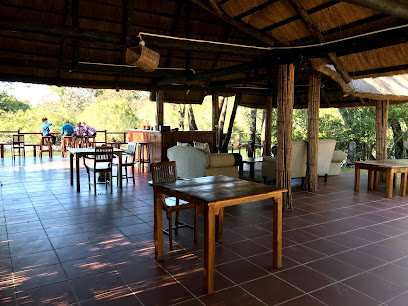
Lufupa Lodge Dining Area
Experience exquisite dining at Lufupa Lodge Dining Area amidst Zambia's breathtaking landscapes.
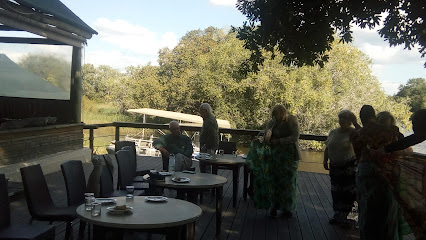
Lufupa Lodge
Discover unparalleled serenity and wildlife adventures at Lufupa Lodge in Zambia's breathtaking wilderness.
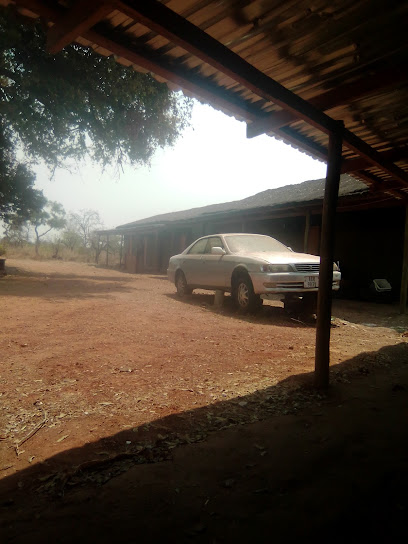
Markets, malls and hidden boutiques
EastPark Mall
Explore EastPark Mall in Lusaka - Your Ultimate Shopping Destination with Great Dining and Entertainment Options.
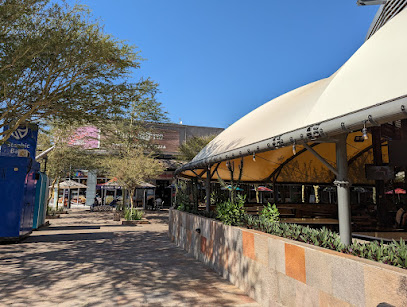
Levy Junction Shopping Mall
Discover the ultimate shopping experience at Levy Junction Mall, Lusaka's premier destination for shopping, dining, and entertainment.

Arcades Shopping Mall
Discover shopping, dining, and entertainment at Arcades Shopping Mall in Lusaka, a vibrant hub of local culture and global brands.
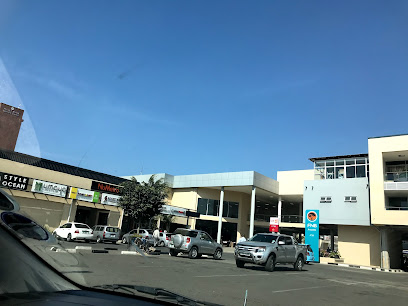
Kafubu Shopping Mall
Discover the vibrant Kafubu Shopping Mall in Ndola, Zambia, a shopping paradise with diverse stores, dining options, and entertainment for all.
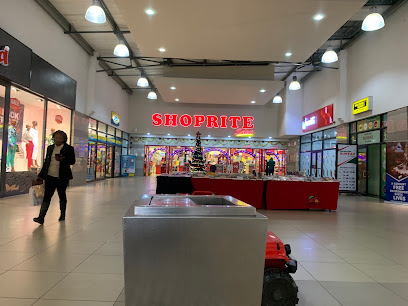
Kafue River Mall
Explore Kafue River Mall: A shopping haven in Zambia with diverse stores, eateries, and entertainment for an unforgettable experience.
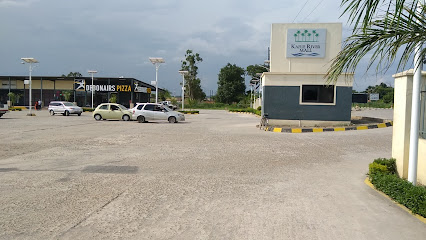
Shoprite Kafubu Mall
Discover the vibrant atmosphere of Shoprite Kafubu Mall, a premier supermarket in Ndola offering local flavors and a unique shopping experience.
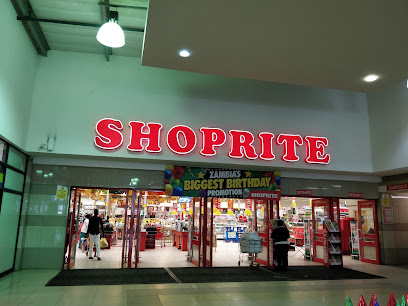
Z-MART Shopping Mall
Discover endless shopping and entertainment at Z-MART Shopping Mall in Ndola - your ultimate shopping destination in Zambia.
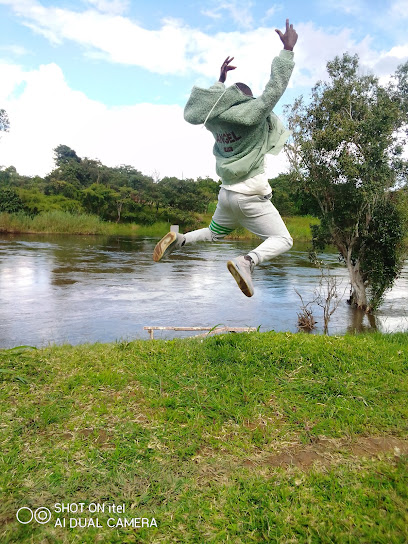
Jacaranda Mall
Discover the vibrant shopping scene at Jacaranda Mall in Ndola, where local culture meets modern retail and dining experiences.
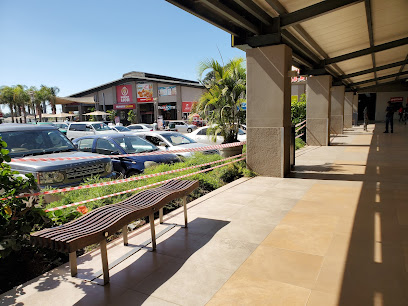
Dola Hill Wholesale City
Experience the heart of Zambian commerce at Dola Hill Wholesale City, where local crafts and vibrant culture blend seamlessly in Ndola.
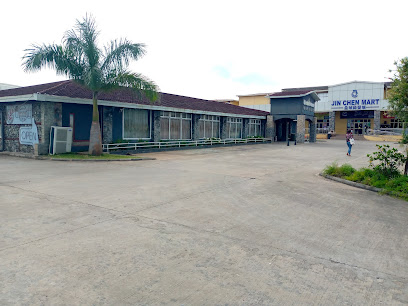
Kafue National Park
Explore Kafue National Park: Zambia's largest national park, a wildlife haven rich in biodiversity and stunning landscapes.
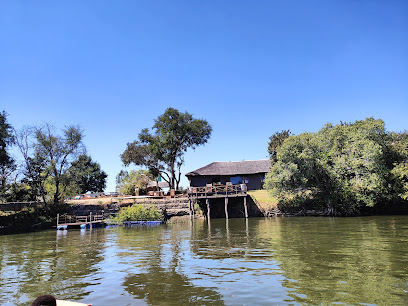
REKAY'S FARMING AND BUILDING SUPPLIES LTD
Explore Ndola's local hardware haven, Rekay's Farming and Building Supplies Ltd, featuring quality products and exceptional service.
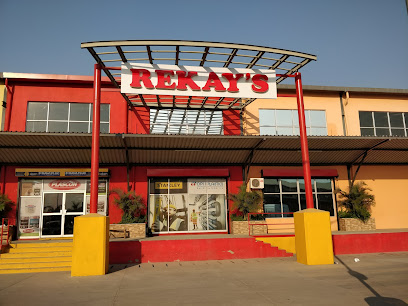
Mukambi Safari Lodge
Discover the heart of Zambia at Mukambi Safari Lodge, the perfect blend of luxury and wildlife adventure near Chunga Kafue National Park.

Henry Tayali Gallery
Discover the heart of Zambian creativity at the Henry Tayali Gallery, showcasing local art and culture in Lusaka.
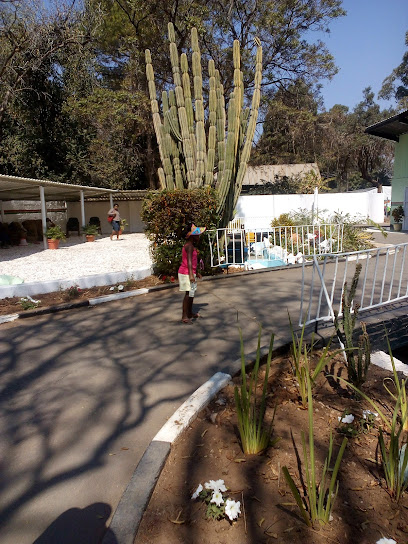
Z-MART Stores · Ndola
Discover Z-MART Stores in Ndola for a unique shopping experience with a variety of home goods and local souvenirs, all in a welcoming atmosphere.
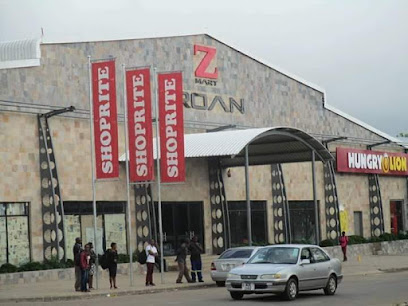
Kasabushi Camp
Experience the breathtaking landscapes and wildlife of Kafue National Park at Kasabushi Camp, your serene getaway in Zambia's wilderness.
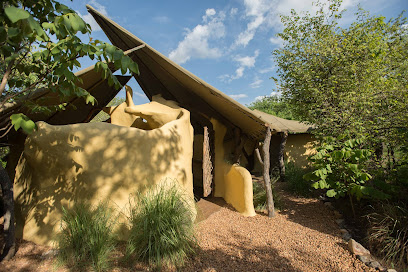
Essential bars & hidden hideouts
Lufupa River
Discover the serene beauty and wildlife of Lufupa River, a hidden gem in Zambia perfect for nature lovers and adventure seekers.
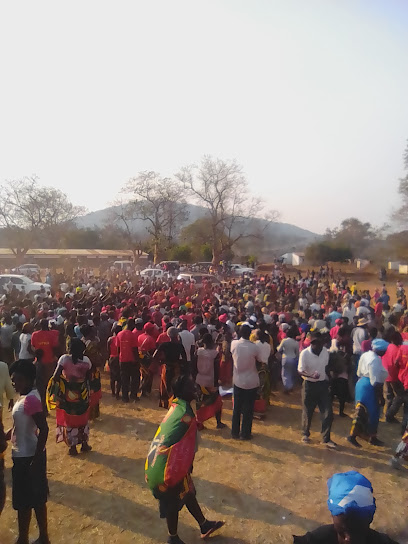
Lufupa River Camp
Discover tranquility and adventure in Zambia at Lufupa River Camp, a serene oasis by the Kafue and Lufupa Rivers.
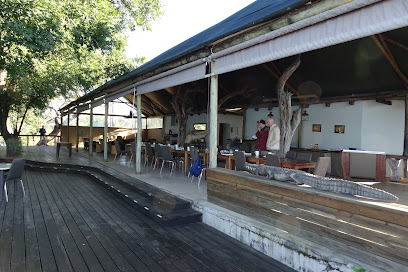
Kafue River Lodge
Experience the flavors of Zambia at Kafue River Lodge, a picturesque restaurant by the Kafue River offering fresh, local cuisine in a serene setting.
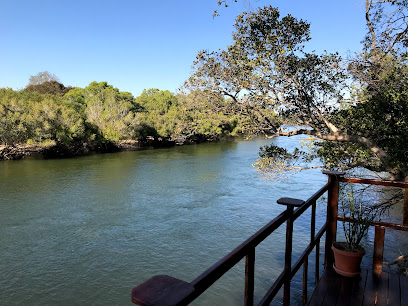
Lufupa Lodge Dining Area
Experience the unique flavors of Zambia at Lufupa Lodge Dining Area, where culinary delight meets breathtaking natural beauty.
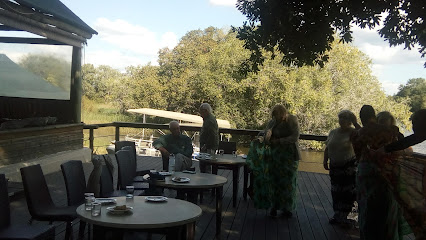
Lufupa Lodge
Discover the tranquil beauty of Lufupa Lodge in Zambia, an ideal indoor lodging for nature lovers and adventure seekers.
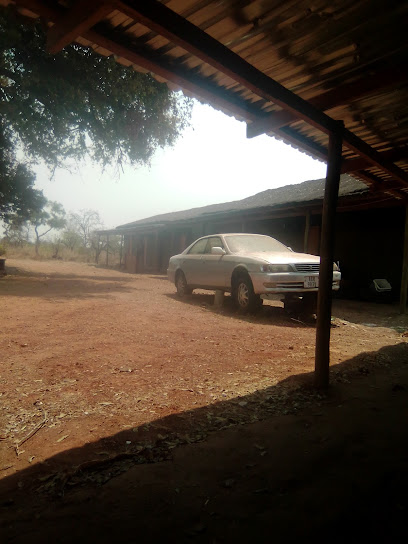
Local Phrases about Lufupa River Camp
-
- HelloMuli bwanji
[moo-lee bwan-jee] - GoodbyeZikomo
[zee-koh-moh] - YesEe
[ay] - NoAyiyi
[ah-ee-yee] - Please/You're welcomeZikomo
[zee-koh-moh] - Thank youZikomo
[zee-koh-moh] - Excuse me/SorryPepani
[peh-pah-nee] - How are you?Muli bwanji?
[moo-lee bwan-jee] - Fine. And you?Ndili bwino. Inu?
[in-dee-lee bwee-no. ee-noo] - Do you speak English?Mukhulupirira Chingerezi?
[moo-koo-loo-pee-ree-rah cheen-geh-reh-zee] - I don't understandSindikumvetsa
[sin-dee-koom-veh-tsa]
- HelloMuli bwanji
-
- I'd like to see the menu, pleaseNdimakufuna kuyang'ana menu, chonde
[in-dee-mah-koo-foo-nah koo-yang-ah-nah meh-noo, chon-deh] - I don't eat meatSindikudya nyama
[sin-dee-koo-dyah nyah-mah] - Cheers!Tukukula!
[too-koo-koo-lah] - I would like to pay, pleaseNdimakufuna kuyimba, chonde
[in-dee-mah-koo-foo-nah koo-yim-bah, chon-deh]
- I'd like to see the menu, pleaseNdimakufuna kuyang'ana menu, chonde
-
- Help!Chilungamo!
[chee-loon-gah-moh] - Go away!Pita!
[pee-tah] - Call the Police!Pemphelani Polisi!
[pehm-pheh-lah-nee poh-lee-see] - Call a doctor!Pemphelani Daktari!
[pehm-pheh-lah-nee dahk-tah-ree] - I'm lostNdimakwiya
[in-dee-mah-kwee-yah] - I'm illNdimazuka
[in-dee-mah-zoo-kah]
- Help!Chilungamo!
-
- I'd like to buy...Ndimakufuna kugulitsa...
[in-dee-mah-koo-foo-nah koo-goo-lee-tsa...] - I'm just lookingNdimakukhala ndikulipira
[in-dee-mah-koo-kha-lah in-dee-koo-lee-pee-rah] - How much is it?Yambirani ndalama yanu?
[yahm-bee-rah-nee in-dah-lah-mah yah-noo] - That's too expensiveIzi zambiri zosowa
[ee-zee zahm-bee-ree zoh-soh-wah] - Can you lower the price?Mukhoza kusowa ndalama?
[moo-koh-zah koo-soh-wah in-dah-lah-mah]
- I'd like to buy...Ndimakufuna kugulitsa...
-
- What time is it?Ntchito yake ndi nthawi yotani?
[ntchee-toh yah-keh in-dee n-tah-wee yoh-tah-nee] - It's one o'clockNdi nthawi yotsiku
[in-dee n-tah-wee yoh-tsee-koo] - Half past (10)Ndi nthawi ya mawa (10)
[in-dee n-tah-wee yah mah-wah (10)] - MorningMawa
[mah-wah] - AfternoonM'mawa
[m-mah-wah] - EveningUsiku
[oo-see-koo] - YesterdayPatapita
[pah-tah-pee-tah] - TodayLero
[leh-ro] - TomorrowMawa
[mah-wah] - 1Moja
[moh-jah] - 2Ziwiri
[zee-wee-ree] - 3Tatu
[tah-too] - 4Nai
[nah-ee] - 5Sanu
[sah-noo] - 6Chisanu
[chee-sah-noo] - 7Tsopano
[tsoh-pah-noh] - 8Tosope
[toh-soh-peh] - 9Pachanu
[pah-chah-noo] - 10Chumi
[choo-mee]
- What time is it?Ntchito yake ndi nthawi yotani?
-
- Where's a/the...?Muli kuti...?
[moo-lee koo-tee] - What's the address?Adilesi ndi ndani?
[ah-dee-leh-see in-dee in-dah-nee] - Can you show me (on the map)?Mukhoza kundipangitsa (pa mapha)?
[moo-koh-zah koon-dee-pahng-ee-tsa (pah mah-pah)] - When's the next (bus)?Muli nthawi yotsiku (bus)?
[moo-lee n-tah-wee yoh-tsee-koo (boos)] - A ticket (to ....)Chikiti (ku ....)
[chee-kee-tee (koo)]
- Where's a/the...?Muli kuti...?
History of Lufupa River Camp
-
Before the arrival of European explorers, the area surrounding Lufupa River Camp was inhabited by the Ila and Batwa peoples. These indigenous groups lived harmoniously with nature, relying on the rich ecosystems of the Kafue River and its tributaries for sustenance. The Ila were known for their cattle-herding skills, while the Batwa people were renowned for their deep knowledge of the forest and riverine environments.
-
The first European to set eyes on the Kafue River region was the famous Scottish explorer David Livingstone in the mid-19th century. His accounts of the vast wildlife and the potential for missionary work attracted other European explorers and missionaries. By the late 19th century, Zambia, then known as Northern Rhodesia, became part of the British Empire. The area around Lufupa River saw increased activity as Europeans established missions and trading posts.
-
In 1950, the British colonial government established Kafue National Park, which encompasses the Lufupa River Camp area. The park was created to protect the diverse wildlife and ecosystems of the Kafue River Basin. It is one of the largest national parks in Africa, covering an area of approximately 22,400 square kilometers. The establishment of the park marked a significant shift towards conservation and eco-tourism in the region.
-
Following Zambia's independence from British rule in 1964, the government placed a renewed emphasis on the development and conservation of its natural resources. Kafue National Park, including the Lufupa River Camp area, benefited from various conservation initiatives and infrastructure improvements. The construction of better roads and airstrips made the area more accessible to tourists, boosting eco-tourism and providing local communities with new economic opportunities.
-
Lufupa River Camp was established as a premier eco-tourism destination within Kafue National Park. The camp is strategically located at the confluence of the Lufupa and Kafue Rivers, offering spectacular views and abundant wildlife sightings. The camp's establishment marked a new chapter in sustainable tourism, with a strong focus on environmental conservation and community involvement. It has since become a favorite spot for nature enthusiasts and history buffs alike.
Lufupa River Camp Essentials
-
Lufupa River Camp is located within the northern region of Kafue National Park in Zambia. The nearest international airport is Kenneth Kaunda International Airport in Lusaka, approximately 400 kilometers away. From Lusaka, travelers can reach the camp by chartered flights to the Lufupa airstrip or by a combination of road transfer and boat ride. The road journey takes about 6 to 8 hours, and it is advisable to use a 4x4 vehicle due to the rough terrain.
-
Within Lufupa River Camp, transportation is typically provided by the camp itself, including game drive vehicles and boats for river excursions. For those exploring the surrounding areas, 4x4 vehicles are recommended. Transfers to and from the camp can be arranged through tour operators or the camp's management. There is no public transportation available within the camp area.
-
The official currency in Zambia is the Zambian Kwacha (ZMW). While credit cards are accepted at Lufupa River Camp, it is advisable to carry some cash for tips and any purchases at local markets. ATMs are available in major towns, but it is best to withdraw sufficient cash in Lusaka before heading to the camp, as ATMs are scarce in remote areas.
-
Lufupa River Camp is generally safe for tourists. However, it is important to follow camp guidelines and remain vigilant. Wildlife encounters are common, so always stay within designated areas and never walk alone at night. Crime rates targeting tourists are low within the camp, but it is wise to keep valuables secured. When traveling through urban areas, avoid displaying expensive items and be cautious in crowded places.
-
In case of emergency, the camp management is equipped to handle medical situations and can arrange for evacuation if necessary. It is crucial to have travel insurance that covers medical emergencies and evacuation. The nearest medical facilities are located in Mumbwa, about 3 to 4 hours away by road. For urgent assistance, contact the camp staff immediately.
-
Fashion: Do wear neutral-colored clothing suitable for safari, such as khaki, beige, and green. Avoid bright colors that may attract wildlife. Religion: Do respect local customs and traditions. Zambia is predominantly Christian, so dress modestly when visiting local communities. Public Transport: Public transport is not available within the camp. Use the camp's transportation services for safe travel. Greetings: Do greet people with a handshake and a friendly smile. It is customary to address elders with respect. Eating & Drinking: Do try local dishes and accept food offerings graciously. Avoid drinking tap water; always use bottled water provided by the camp.
-
To experience Lufupa River Camp like a local, participate in guided walking safaris and boat cruises to get up close with the wildlife. Engage with the camp staff and local guides, as they can provide valuable insights into the area's flora and fauna. Visit nearby local villages to learn about the culture and way of life. Don't miss the opportunity to witness the stunning sunsets along the Lufupa River.
Nearby Cities to Lufupa River Camp
-
Things To Do in Kabwe
-
Things To Do in Solwezi
-
Things To Do in Kitwe
-
Things To Do in Ndola
-
Things To Do in Kariba
-
Things To Do in Livingstone
-
Things To Do in Kasane
-
Things To Do in Victoria Falls
-
Things To Do in Katima Mulilo
-
Things To Do in Hwange
-
Things To Do in Chinhoyi
-
Things To Do in Harare
-
Things To Do in Gweru
-
Things To Do in Maun
-
Things To Do in Chipata






